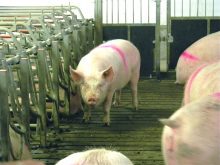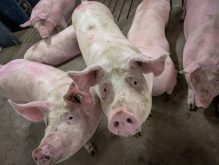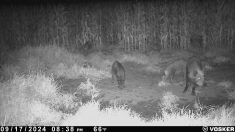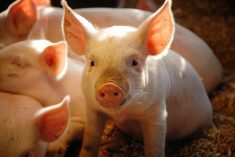Manitoba pork producers are calling for authority to police their own industry after a court last week convicted a Notre Dame hog farmer of animal cruelty.
Livestock abuse cases could be resolved more quickly and effectively if the industry regulated itself instead of having the judicial system do it, Manitoba Pork Council officials said.
“We feel that we need to be able to license producers to be able to produce in the province,” said Karl Kynoch, pork council chairman.
“If we could do that, we could take more control of these types of things and make sure the people who are producing meet today’s standards.”
Read Also
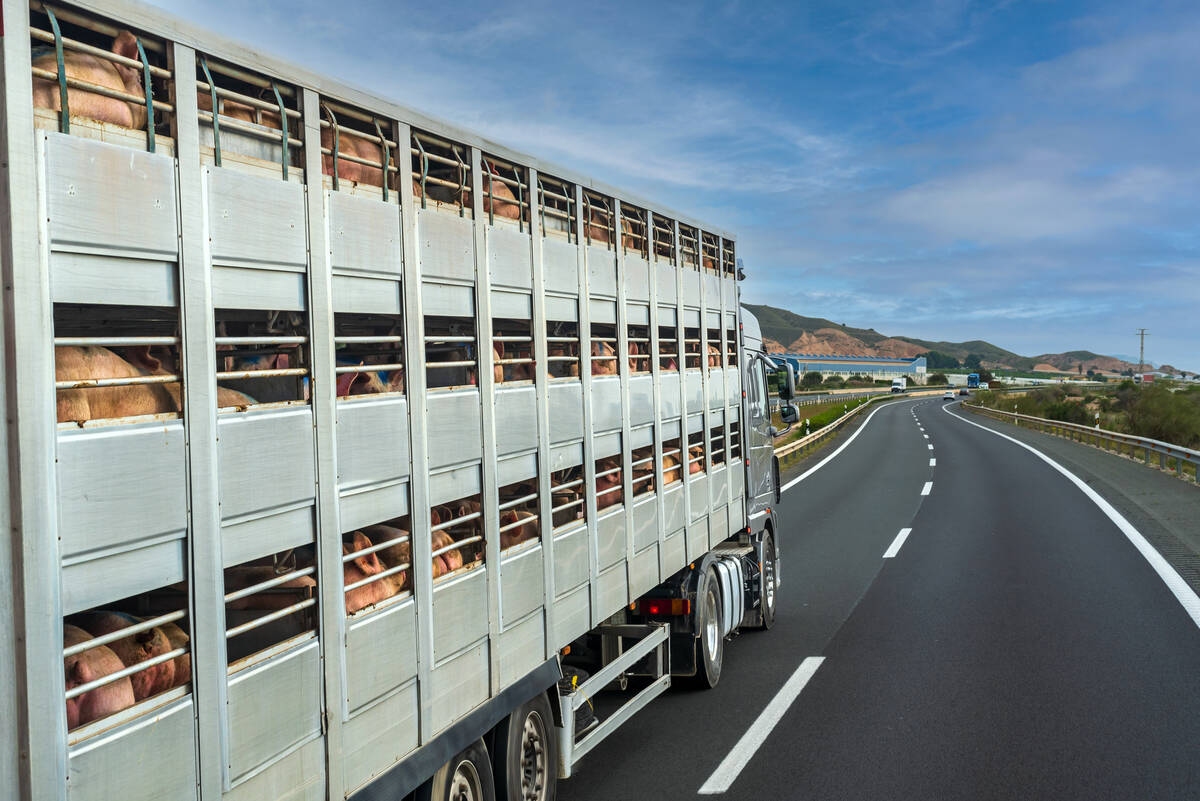
Pig transport stress costs pork sector
Popular livestock trailer designs also increase pig stress during transportation, hitting at meat quality, animal welfare and farm profit, Agriculture and Agri-Food Canada researcher says
Kynoch was referring to a case involving Martin Grenier, who received a $60,000 fine and a lifetime ban on having care or control of animals after being convicted in a Winnipeg court last week to over a dozen charges under the province’s Animal Care Act.
Grenier, 39, pleaded guilty to causing the deaths of more than 1,200 pigs in a case which officials called the worst animal abuse they had ever seen in the province.
A police investigation last summer at a hog barn owned by Grenier in the Rural Municipality of Lorne discovered dead and dying pigs in horrific conditions. The pigs had been abandoned without food, water or care. Over 1,200 were either dead or had to be euthanized on site.
Through his lawyer, Grenier said he suffered from severe depression at the time and
was unable to take care of the pigs, which he was feeding for a local Hutterite colony.
Andrew Dickson, Manitoba Pork Council general manager, expressed satisfaction Grenier’s penalty was near the maximum allowed by the law.
But he said the case took too long to resolve and the law doesn’t always prevent producers who abuse livestock from doing it again.
Dickson said the pork council wants the ability to set standards for production and the authority to inspect premises to ensure those standards are being met. If they are not, the council could charge offending farmers and stop them from producing by delisting them.
Pork is a regulated commodity under the Manitoba Farm Products Marketing Act. Producers who market pigs must register with the Manitoba Pork Council.
But the pork council has no authority to enforce on-farm standards of animal care, as do marketing boards for dairy, eggs and poultry, which are also regulated under the act.
If the council could inspect and police its own producers, it might be able to prevent abuse cases from occurring in the first place, said Dickson.
If a farmer was found to be abusing his pigs, MPC could deregister him so he couldn’t be a producer.
The council has asked the province several times if the law, as it stands, allows for that, he said.
“We’ve asked for clarification from the province, the way the regulation is written up, if we have sufficient authority to be able to deny a person registration if they don’t meet certain standards for care of animals.”
Right now, livestock abuse must be proved through a long, complicated legal process and “we could do it more quickly,” said Dickson.
“We could do an inspection and say, he doesn’t meet our standards, we’re not registering him.” [email protected]
———
“Wecoulddoitmorequickly.”
– ANDREW DICKSON, MPC






